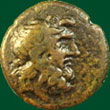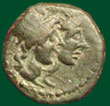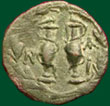"Walking in the Air" is a song written by Howard Blake for the 1982 animated film of Raymond Briggs' 1978 children's book The Snowman. In the film the song was performed by St. Paul's Cathedral choirboy Peter Auty. For the subsequent single release, which reached number five in the UK pop charts in 1985, the vocals were sung by Welsh chorister Aled Jones, who became a popular celebrity on the strength of his performance. Jones' version was not an official The Snowman tie-in though it was authorised by Howard Blake. "Walking in the Air" has subsequently been covered by several different artists, in a variety of styles.
The song forms the centrepiece of The Snowman, which has become a seasonal perennial on British television. The story relates the fleeting adventures of a young boy, and a snowman who has come to life. In the second part of the story, the boy and the snowman fly to the North Pole. "Walking in the Air" is the theme for the journey. They attend a party of snowmen, at which the boy is the only human. They meet Father Christmas and his reindeer, and the boy is given a scarf with a snowman pattern.
The image of the non-developed economy, we have formed so far. supported by the fact that unlike many other Greek cities, Sparta was not mint silver coins until the 3rd century BC
According to some ancient writers, Sparta classic years consciously maintained a cumbersome heavy iron money in retail, to remain outside the realm of trade with foreigners.
Indeed, many later sources indicate that by 404 BC totally banned in Sparta gold and silver coins. That year, Lysander sent back to Sparta countless spoils he had obtained after his victory in battle Aegospotami, among which included a huge amount of Athenian coins.
Then taken the decision to be first accepted this currency for public use in Sparta. But to ban the possession by individuals. However, as reported by Plutarch in the Life of Lysander, since the currency was allowed in the city, passed easily in private hands, so there are cases of greed and corruption. One development that has undermined the power of Sparta. These questions, however, the data and the impact viruses require thorough study. Failure to use currency in Sparta was unusual practice.

Indeed, the low value of iron currency implies that prevailed a system of ongoing use, since transactions over a certain value require the use of most precious metals. Several pieces of evidence converge on an estimate that was made use of foreign coins and silver bars before 404 BC During the Peloponnesian War, for example, the city used silver coins to pay the mercenary soldiers and rowers of the fleet. Inside the Sparta, the city imposed fines on citizens and mandatory monthly rations common costs 10 obols of Aegina. Gold coins and raw gold and silver distributed to Spartan soldiers from the Persian spoils after the battle of Plataea in 479. Consequently, when in 404 BC decided to allow the use of silver coins but not the possession of the measure came as no relaxation, but a limitation of the previous practice. Not surprisingly, the Spartans people soon slip from the attempted arrest. However, the assertion of Plutarch, that is what caused the erosion of moral values is exaggerated since private ownership of silver coins was not something new.

upload sound, big screen and enjoy





